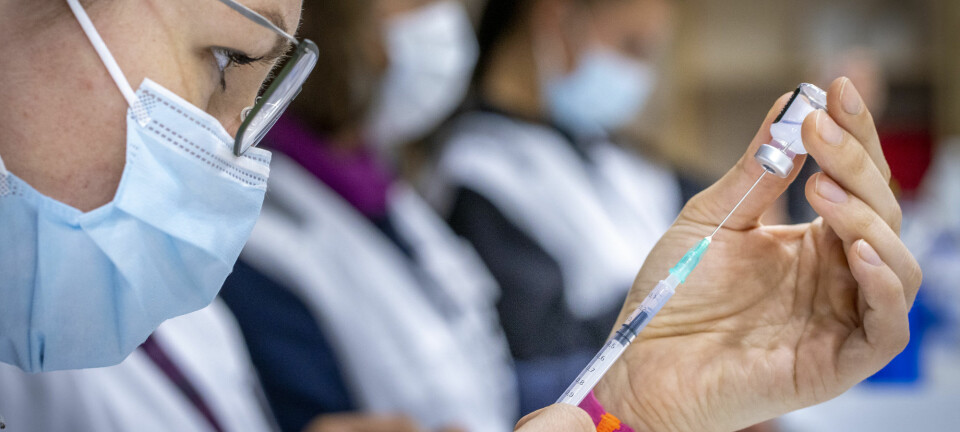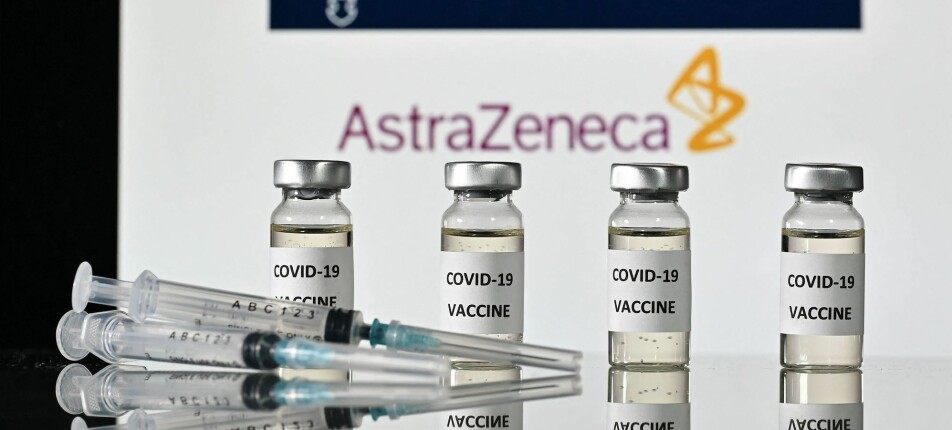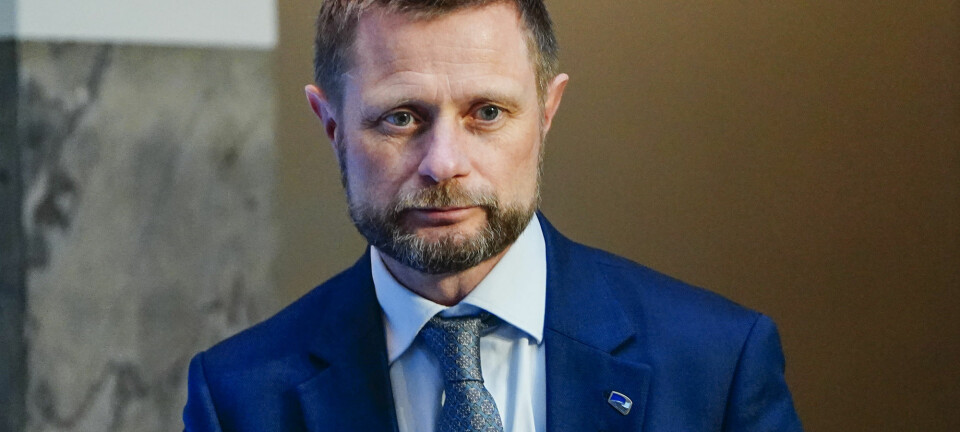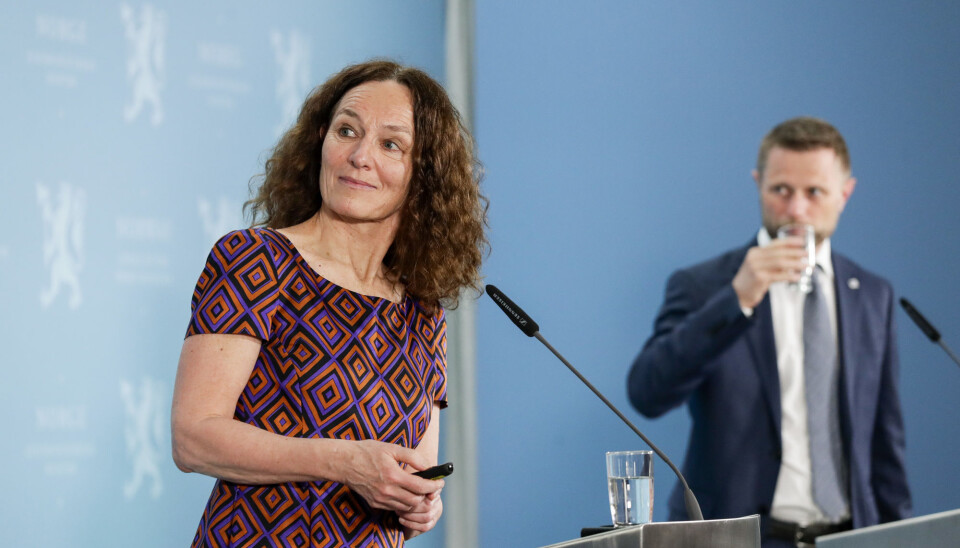
Norwegian health experts strongly disagree with the government's decision to offer Johnson & Johnson vaccine voluntarily
“We are of the opinion that doctors should not participate in this," says the president of the Norwegian Medical Association.
One in five Norwegians would like to take the Johnson & Johnson vaccine, according to a survey commissioned by the newspaper VG,
Camilla Stoltenberg, Director of the Norwegian Institute of Public Health is not among them:
“It’s not that I would not take this vaccine under any circumstance,” she says to national newspaper VG.
“But given that we have the opportunity to have better vaccines, and the waiting time until the first dose isn’t that long – I would not take this vaccine”.
Norway is expected to have offered all citizens above the age of 18 their first shot by the end of July/beginning of August.
Vaccinations are taking a bit longer than estimated, as more people than expected are taking the vaccine. In the age group 75-84 for instance, the uptake has been 97 per cent, according to an article in VG.
Removed from the national vaccination programme
The Norwegian Institute of Public Health recommended that Norway remove the AstraZeneca vaccine from the Norwegian vaccine programme already in mid-April. In May they extended this recommendation to the Johnson & Johnson vaccine.
Both vaccines are so-called adenoviral vector vaccines, and it is believed that the very serious blood clotting side effects that have potential lethal outcomes may be connected to this technology.
In Norway, 1 in 17 000 got the rare and serious side effect from the AstraZeneca vaccine. This number is based on actual registered cases. The number for Johnson & Johnson is 1 of 100 000, but this number is connected to a high amount of uncertainties.
An expert report commissioned by the government also recommended the two vaccines be taken out of the national vaccination programme. A minority however recommended that the Johnson & Johnson vaccine could be given to those who wanted to take it. This is what the Norwegian government has decided to do.
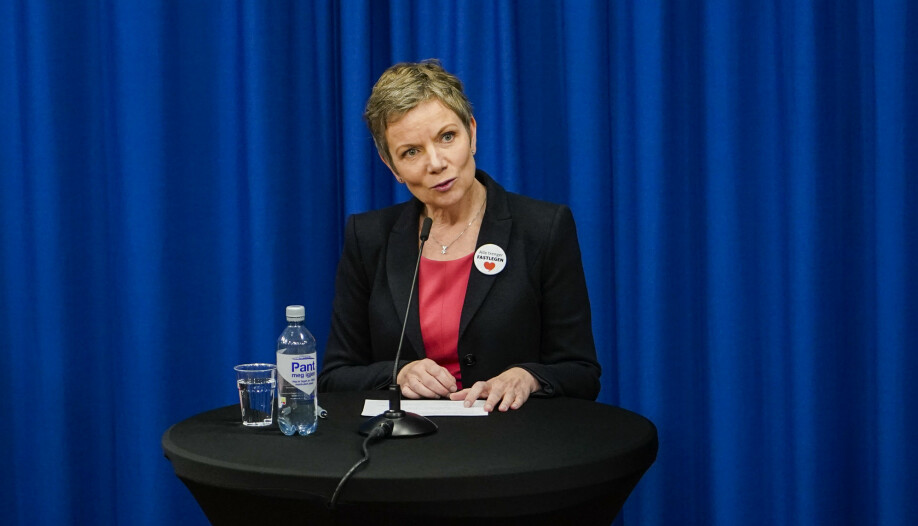
Thinks doctors should not participate
The Norwegian Medical Association has advised their members to not administer the Johnson & Johnson vaccine to patients. In a letter to the Ministry of Health, the association writes that their advice to doctors and municipalities is to not participate in the volunteer vaccinations.
“We are of the opinion that doctors should not participate in this,” says Marit Hermansen, president of the Medical Association.
“It will demand a lot of information, guidance and almost completely impossible dilemmas,” she says to the national Norwegian broadcaster nrk.no.
“What these young, healthy people are actually considering is whether they should take the risk of these very serious side effects in order to be able to go on holiday or other private affairs. It’s a very unusual risk evaluation which I believe health personnel do not have the capacity or the possibility to do. And individuals should also not be faced with making such decisions,” Hermansen says.
"The vaccine’s just not that good"
Neighbouring Nordic country Denmark has already started offering the adenoviral vector vaccines from Johnson & Johnson and AstraZeneca on a volunteer basis. According to newspaper Berlingske more than 10 000 Danes have signed up to get their shot.
The Norwegian Directorate of Health is still working on how to offer the vaccine to the Norwegian public. The vaccine will be free, but those who wish to take it must first speak to their GP and receive information.
Director Bjørn Guldvog however, like Camilla Stoltenberg from the NIPH, would also not recommend taking the vaccine unless there were pressing reasons.
“This isn’t a bad vaccine, it’s just not that good,” he says to VG.
“Unless I had extremely special reasons to do otherwise, I would wait,” he says.
Ethically problematic to deny people the choice
Norway was one of the first countries to sound the alarm on the serious blood clotting side effects from the AstraZeneca vaccine, and paused the use of the vaccine on March 11.
In order to have turned every stone before reaching a final decision, the government gave an independent expert group the task of evaluating adenoviral vector vaccines. The group recommended that AstraZeneca be removed from the national vaccine programme, and that Johnson & Johnson could be given under very special circumstances.
A minority of the experts recommended the vaccine be given to whoever wants it, among them Ingrid Hjort, a social economist at BI Norwegian Business School and Linda Nøstbakken, a social economist at Statistics Norway.
“When access to vaccines is being rationed, it is ethically problematic to deny people the opportunity of having a vaccine that they themselves wish to take,” they wrote in a comment in newspaper VG.
“Delayed vaccination comes with a great cost for society and for individuals. Ensuring that more people get a vaccine faster can be imperative for the individual and at the same time contribute to an earlier reopening of society,” they write.
Vaccine researcher shocked by the decision
Vaccine researcher Gunnveig Grødeland however, also a member of the expert group, has said that she is shocked by the government’s decision to allow people to have the Johnson & Johnson vaccine.
“I am shocked and puzzled by this decision, and I wonder which medical expertise is actually behind the decisions that have been made,” she said to newspaper Dagbladet.
Grødeland says she hopes nobody in Norway will take their chances on the vaccine, but that she fears young people will jump on the offer in order to travel more freely this summer. The researcher warns that some of them may experience side effects that may affect their health for life.
“I find this incredibly problematic. Even if the condition is discovered early there is no good option for treatment available. This is something I think should be communicated very clearly. The prognosis is very poor, also for those who receive help,” she says.
The Norwegian Institute of Public Health have concluded that for women aged 18-50 in Norway, getting a Johnson & Johnson vaccine poses a greater risk than waiting for an mRNA vaccine.
Individual choice in a pandemic
In the VG-survey on the topic, 50 per cent of those aged 18-24 say they are positive to getting the Johnson & Johnson vaccine. 38 per cent of those under the age of 35 are positive. Women are more skeptical than men.
As long as information about side effects and advice for what to do if you experience symptoms is given, prime minister Erna Solberg has said that she believes “individuals are capable of making their own choices”, according to VG.









